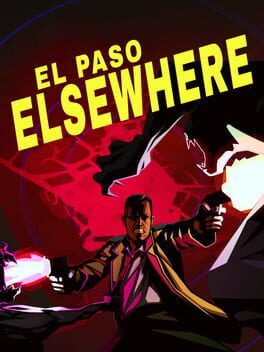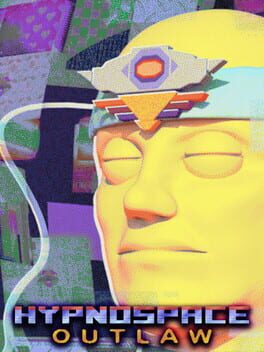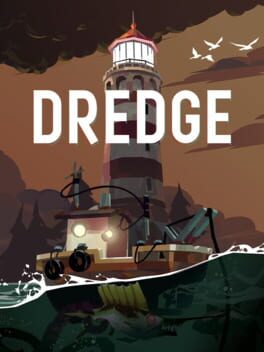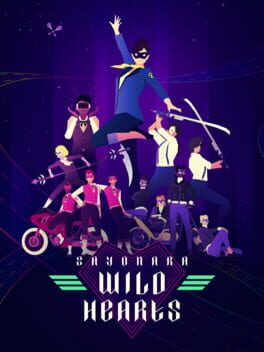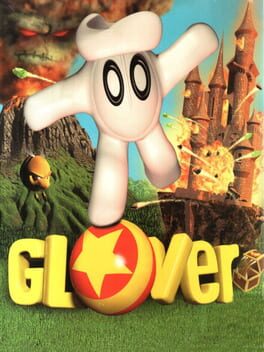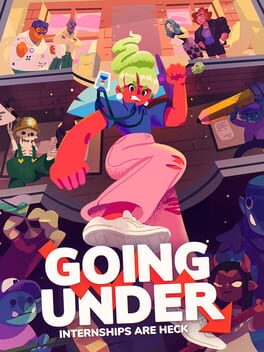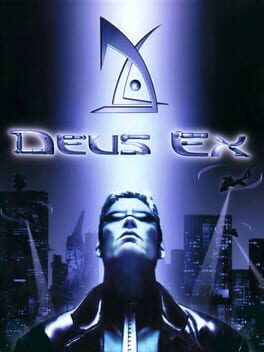CheddarFunk
2023
Chants of Sennaar is a fascinating game that saves its most indicting themes for moments of individual discover. Rather than pompously expositing revelation, the game trusts in its puzzles - and the players dedication to unveiling the many languages of the game's world - to lay before us the consequence of language. Its central thesis, with others orbiting around it, is that language is a social construct.
While that feels underwhelming, the game's exhaustive exploration into what this could mean motivates both the aforementioned puzzles and the game's world design. It is as if the languages, each one prescribed to one of the five castes, reinforce the hierarchical linearity of the Tower of Babel world. As an example, the race of the devotees call themselves as such. However, the caste above them, the warriors, does not have a word for devotees. Instead, they call them the impure. Nothing could be more damning than linguistic superiority, entrapping a whole group of people by deeming their faith as a dross.
Additionally, the warriors' task themselves with protecting who the call the chosen ones, the caste above them. The chose ones call themselves bards, but such an appellation amplifies their fabricated worthiness. Indeed, the chosen ones seem to be busy contemplating their own beauty. Even more so, they don't even have a word for the devotees; the caste is so far below them it is rendered unimportant, non-existent.
All of this is determinable by merely playing the game - it's discovery-centered interactivity fueled by the tabula rasa of the nameless protagonist. As an outsider of unknown origin, they/you have the benefit in contextualizing the segregating stratification as you make like a chameleon and effortlessly move between castes.
And this Babel-like tower is impressive, with imposing architecture that resonates with historical prominence. It's tall, too, which may be a trivial observation, but gives it a narrative and thematic heft as you approach the climax - the importance of what you've been doing all along becomes clear at the moment you can theoretically look down on all the areas you traversed.
None of the puzzles are overly difficult, but any struggles are based on how esoteric the setup is. And it is not necessarily a bad thing, though I did find myself missing out on clues simply because the visual cues that hint at a solution were arguably too inconspicuous. No matter, the fact that you can progress through this game with a combination of deductive skills and observant intuition is one of the game's highlights. Much like how The Return of the Obra Dinn provided a system of rewarding educational guesses, Sennaar does the same those endorphin-producing moments of accomplishment form a kinship with the Lucas Pope game.
Ultimately, the game makes a great case for the ways in which we actively set boundaries around ourselves through a fear and ignorance. Language is as solid as the limestone walls the reach up towards the sky. It simulates a variation of Nietzschean thought about the proliferation of Christianity as a faith based on the oppressed while also commenting on unsustainable god-complexes of the entitled. Chants of Sennaar offers a compelling suggestion to pierce through traditional social partitioning, where languages aren't compartmentalized but fused and conflated to form a more integral experience.
While that feels underwhelming, the game's exhaustive exploration into what this could mean motivates both the aforementioned puzzles and the game's world design. It is as if the languages, each one prescribed to one of the five castes, reinforce the hierarchical linearity of the Tower of Babel world. As an example, the race of the devotees call themselves as such. However, the caste above them, the warriors, does not have a word for devotees. Instead, they call them the impure. Nothing could be more damning than linguistic superiority, entrapping a whole group of people by deeming their faith as a dross.
Additionally, the warriors' task themselves with protecting who the call the chosen ones, the caste above them. The chose ones call themselves bards, but such an appellation amplifies their fabricated worthiness. Indeed, the chosen ones seem to be busy contemplating their own beauty. Even more so, they don't even have a word for the devotees; the caste is so far below them it is rendered unimportant, non-existent.
All of this is determinable by merely playing the game - it's discovery-centered interactivity fueled by the tabula rasa of the nameless protagonist. As an outsider of unknown origin, they/you have the benefit in contextualizing the segregating stratification as you make like a chameleon and effortlessly move between castes.
And this Babel-like tower is impressive, with imposing architecture that resonates with historical prominence. It's tall, too, which may be a trivial observation, but gives it a narrative and thematic heft as you approach the climax - the importance of what you've been doing all along becomes clear at the moment you can theoretically look down on all the areas you traversed.
None of the puzzles are overly difficult, but any struggles are based on how esoteric the setup is. And it is not necessarily a bad thing, though I did find myself missing out on clues simply because the visual cues that hint at a solution were arguably too inconspicuous. No matter, the fact that you can progress through this game with a combination of deductive skills and observant intuition is one of the game's highlights. Much like how The Return of the Obra Dinn provided a system of rewarding educational guesses, Sennaar does the same those endorphin-producing moments of accomplishment form a kinship with the Lucas Pope game.
Ultimately, the game makes a great case for the ways in which we actively set boundaries around ourselves through a fear and ignorance. Language is as solid as the limestone walls the reach up towards the sky. It simulates a variation of Nietzschean thought about the proliferation of Christianity as a faith based on the oppressed while also commenting on unsustainable god-complexes of the entitled. Chants of Sennaar offers a compelling suggestion to pierce through traditional social partitioning, where languages aren't compartmentalized but fused and conflated to form a more integral experience.
2023
Embodying the noir-ish surreality introduced so intriguingly in the Max Payne games of the 2000s, El Paso, Elsewhere leans further into the fantastical as you take control of James Savage, a man essentially on a death drive to try and stop his ex-girlfriend from obliterating humanity - she is a vampire, by the way.
While it's narrative is rich in complexity, fueled by the straining toxicity of the two former lovers as they navigate their own identities, the game design is a bit simpler. It's less focused on a gradual development of environments as you descend into the dimensionless void since the they repeat, remix with each other, and altogether reflect a cyclical trajectory of angst, sorrow, and longing. It makes sense, but one of the many issues with this game is in its repetition in its world building. It's almost more similar to a game like Robotron - the same level over and over but populated by more and more enemies - than Max Payne.
The gameplay, at its core, is fun - its action aggressive, tinged with traces of survival and psychological horror. Fighting your way through armies of vampires, werewolves, and other creatures provides a rush in part because of its Max Payne-influenced bullet time. However, I wasn't expecting it to be predictably linear, the intractability with the world and the enemy variants limited. It feels that the amplified melodrama of not just the story and its narration but in the aesthetics (the big, bold names of the levels as you start, for instance) provide a veneer to a design that could have been a bit more ambitious, matching its narrative musculature.
And that narration is delightfully discomforting. Savage, voiced by the game's creative lead Xalavier Nelson Jr., reeks of an elusive regret, coaxed by a decomposing sense of self-worth. Paralleling the dizzying world also falling apart, it's almost as if the narration describes a deep dive into Savage's own soul. Even if the arch-nemesis is trying to destroy humanity, it's still someone he used to love. Compounded with the cinematic flair of cut scenes and other stylistic sensibilities, El Paso holds itself together firmly with tonal viciousness. You continue through this adventure no matter your inclination towards its repetition because there is a confidence brimming from the developers that this story is worth exploring. And it is.
While it's narrative is rich in complexity, fueled by the straining toxicity of the two former lovers as they navigate their own identities, the game design is a bit simpler. It's less focused on a gradual development of environments as you descend into the dimensionless void since the they repeat, remix with each other, and altogether reflect a cyclical trajectory of angst, sorrow, and longing. It makes sense, but one of the many issues with this game is in its repetition in its world building. It's almost more similar to a game like Robotron - the same level over and over but populated by more and more enemies - than Max Payne.
The gameplay, at its core, is fun - its action aggressive, tinged with traces of survival and psychological horror. Fighting your way through armies of vampires, werewolves, and other creatures provides a rush in part because of its Max Payne-influenced bullet time. However, I wasn't expecting it to be predictably linear, the intractability with the world and the enemy variants limited. It feels that the amplified melodrama of not just the story and its narration but in the aesthetics (the big, bold names of the levels as you start, for instance) provide a veneer to a design that could have been a bit more ambitious, matching its narrative musculature.
And that narration is delightfully discomforting. Savage, voiced by the game's creative lead Xalavier Nelson Jr., reeks of an elusive regret, coaxed by a decomposing sense of self-worth. Paralleling the dizzying world also falling apart, it's almost as if the narration describes a deep dive into Savage's own soul. Even if the arch-nemesis is trying to destroy humanity, it's still someone he used to love. Compounded with the cinematic flair of cut scenes and other stylistic sensibilities, El Paso holds itself together firmly with tonal viciousness. You continue through this adventure no matter your inclination towards its repetition because there is a confidence brimming from the developers that this story is worth exploring. And it is.
2019
This review contains spoilers
One of those excitingly singular experiences that reaffirms why video games, to me, are crucial and brilliant, Hypnospace Outlaw sets out to recreate a nostalgia-glazed and surprisingly brittle moment of our lives when the confrontation with the internet caused a giddy maelstrom of emotions. Underneath is aesthetic charm, leaning in on that pre-millenium weirdness that defined a lot of the social landscape of the internet before social media standardized - and perhaps corrupted - the practice.
What is essentially a point-and-click adventure. Hypnospace Outlaw is not a game whose world is made up of castles or fantasy lands, no dystopic urban landscapes or haunted houses. What makes up this world are computer windows, emails, download lists, text files, and screensavers. One could misinterpret it for being a text-based adventure given all the text you have to read on webpages and such, but this is not the case since text is only one of the characteristics inherent to the historical world rejuvenated by this game. Your actions are not strictly text-based but, rather, dictated by how one must navigate the inner workings of a computer and internet browser. such a unique scaffolding for the game design to flourish means that the puzzles have atypical solutions. within the point-and-click genre.
The game's sensibilities inhabit this uncanny but fascinating area between our naivety, excitement, and fear of knowing the internet was now going to be a huge part of our lives. The characters whose webpages we visit are in this aching transformative period trying to decide best how to project their lives and their thoughts into the coded structure of online life. You have elderly, conservative-leaning individuals who seem to not be able to organize their page, unintentionally spamming pictures or poorly formatting text; most of ther life was not preparing them for the moment they could translate their many years of lived experiences onto a website. But then you have younger people, clearly savvier at navigating the tools to create individual experiences, already aware that their webpage is a propagation of their image. Insecurity squirms just underneath the purposefully toxic masculinity expressed by some of the teen boys as a means to fake their superiority. We see how social pressures, and even unseen factors, can contribute to the desire for people to become different online, whether for good or not.
And while the obvious satirical edge this game has in representing the many citizens of this frontier cyberspace, laughing with us at an obliviousness we take for granted, the story gradually reveals itself to be much more concerned about the melancholy earned in the name of a blind faith of online utopia. Your role as a content moderator allows glimpses of not just an uncanny existence in Hypnospace, but a potentially dangerous one. That although these characters, and us at that time, look at the internet with cautious optimism, glowing with possibility at the freedom the internet endorses, we forget that the internet is largely dictated by powerful forces; this reality is still at the mercy of many profit-seeking people who may otherwise overlook what people truly need out of this webpages and instant messaging.
Creeping ever so closely to the climax, we begin to understand that the game was challenging our assumptions of what we thought was nonthreatening, even silly. Perhaps it was easy for you to police some of the self-righteous users of Hypnospace, perhaps it was easy to even censor those that were not just in violation but did not align with your own political or social beliefs. By narrative's end, we look at the same world we've inhabited somberly, well aware of a fragility to this world. And then, just like that, we bear witness to how tragic it could be, too. The one major revelation this game pushes to the forefront is that any utopian ideals for a cyberspace society, so free and so networked, erode in the face of one fundamental issue. That is, Hypnospace, just like Facebook, just like Twitter, and so on and so forth, isn't and could never be a utopian alternative. It will run into the corrupting problems all societies are plagued with because the internet is still a human realm. Glossed in a blinding veneer of innovation, we forget that these technological breakthroughs can only be as good as our society would let it. Conversely, it can be as worse as we are in the real world.
Unsurprisingly, in one of the many moments music (the music in this game is so wild, varied, and beautiful) amplifies the giddiness of internet naivety, playing into our excitement in carving out a place of our own within this cyberspace, we submerge in a oxidized nostalgia, misplaced and fracture. We feel a melancholy step into the place where optimism once stood. The song Millennium Anthem - or the shortened remix titled Eulogy - fully dispels the glitzy, digitally rendered facade. It's line, "Y2K, you let me down," ends up being the unfortunate motto for the game. And we care about this loss, this misguided attitude, because the game convinces us of it world and of its human complications. It's sense of humanity is startling compared to other video games, but this is why Hypnospace Outlaw will remain as one of my favorite games in recent memory.
What is essentially a point-and-click adventure. Hypnospace Outlaw is not a game whose world is made up of castles or fantasy lands, no dystopic urban landscapes or haunted houses. What makes up this world are computer windows, emails, download lists, text files, and screensavers. One could misinterpret it for being a text-based adventure given all the text you have to read on webpages and such, but this is not the case since text is only one of the characteristics inherent to the historical world rejuvenated by this game. Your actions are not strictly text-based but, rather, dictated by how one must navigate the inner workings of a computer and internet browser. such a unique scaffolding for the game design to flourish means that the puzzles have atypical solutions. within the point-and-click genre.
The game's sensibilities inhabit this uncanny but fascinating area between our naivety, excitement, and fear of knowing the internet was now going to be a huge part of our lives. The characters whose webpages we visit are in this aching transformative period trying to decide best how to project their lives and their thoughts into the coded structure of online life. You have elderly, conservative-leaning individuals who seem to not be able to organize their page, unintentionally spamming pictures or poorly formatting text; most of ther life was not preparing them for the moment they could translate their many years of lived experiences onto a website. But then you have younger people, clearly savvier at navigating the tools to create individual experiences, already aware that their webpage is a propagation of their image. Insecurity squirms just underneath the purposefully toxic masculinity expressed by some of the teen boys as a means to fake their superiority. We see how social pressures, and even unseen factors, can contribute to the desire for people to become different online, whether for good or not.
And while the obvious satirical edge this game has in representing the many citizens of this frontier cyberspace, laughing with us at an obliviousness we take for granted, the story gradually reveals itself to be much more concerned about the melancholy earned in the name of a blind faith of online utopia. Your role as a content moderator allows glimpses of not just an uncanny existence in Hypnospace, but a potentially dangerous one. That although these characters, and us at that time, look at the internet with cautious optimism, glowing with possibility at the freedom the internet endorses, we forget that the internet is largely dictated by powerful forces; this reality is still at the mercy of many profit-seeking people who may otherwise overlook what people truly need out of this webpages and instant messaging.
Creeping ever so closely to the climax, we begin to understand that the game was challenging our assumptions of what we thought was nonthreatening, even silly. Perhaps it was easy for you to police some of the self-righteous users of Hypnospace, perhaps it was easy to even censor those that were not just in violation but did not align with your own political or social beliefs. By narrative's end, we look at the same world we've inhabited somberly, well aware of a fragility to this world. And then, just like that, we bear witness to how tragic it could be, too. The one major revelation this game pushes to the forefront is that any utopian ideals for a cyberspace society, so free and so networked, erode in the face of one fundamental issue. That is, Hypnospace, just like Facebook, just like Twitter, and so on and so forth, isn't and could never be a utopian alternative. It will run into the corrupting problems all societies are plagued with because the internet is still a human realm. Glossed in a blinding veneer of innovation, we forget that these technological breakthroughs can only be as good as our society would let it. Conversely, it can be as worse as we are in the real world.
Unsurprisingly, in one of the many moments music (the music in this game is so wild, varied, and beautiful) amplifies the giddiness of internet naivety, playing into our excitement in carving out a place of our own within this cyberspace, we submerge in a oxidized nostalgia, misplaced and fracture. We feel a melancholy step into the place where optimism once stood. The song Millennium Anthem - or the shortened remix titled Eulogy - fully dispels the glitzy, digitally rendered facade. It's line, "Y2K, you let me down," ends up being the unfortunate motto for the game. And we care about this loss, this misguided attitude, because the game convinces us of it world and of its human complications. It's sense of humanity is startling compared to other video games, but this is why Hypnospace Outlaw will remain as one of my favorite games in recent memory.
2023
Coincidentally - or probably not, actually - the word "dredge" is very close to the word "dread." And this is revelatory in understanding the tonal structure of the game and how the designers want you to feel about your experience playing it. Even if most of your playtime most likely is dedicated to fishing, or even if the game never pushes you to commence main storyline missions, your time navigating this scant archipelago is laced with an unease - your character's anxiety always seems to take over. From there, it becomes more, glimpses of an all-consuming psychosis as the sea begins to retaliate to your mere presence if you are not careful.
In that case, the quasi-nonlinearity coupled with this menacing glaze echoes a similar exploratory game in 2019's Outer Wilds. While not as visually arresting, the game's aesthetic is smartly implemented to provide a sea that feels vast, a sea whose volume is felt but not fathomable, proliferating the creeping Lovecraftian horrors that are never fully perceptible.
Many of the minor game design facets work well, but with a bit more scrutiny, show some minor flaws. For one, while the mini games prompted through fishing are fundamentally sound, it becomes a bit too easy, even for the rarer or bigger fish. I never got the sense I was reeling in something big, something dangerous. The most difficult aspect of the fishing becomes more apparent when you are aiming to catch all the fish (there are a lot, which is great), as finding certain fish becomes a nearly tedious affair. Thus, a more effective utilization of fishing - one the balances the search and the reeling - is to make the searching a little less tedious and the actual fishing a bit harder.
Moreover, the day/night cycle is important and clearly expresses its importance to the overall experience. Rapidity in the transition between the two is a bit brisk; I wonder how the game will play if the day is even just ten percent longer. While you more than likely will adapt to the urgency, sometimes it doesn't feel warranted as you opt to slow your playthrough down, combing the waters for certain types of fish.
Despite the amounting shortcomings, the visceral experience of venturing into the foggy darkness of the choppy seas is a delightfully horrid presentation. The monsters that lurk just outside your field of vision, just outside the places you feel temporarily safe at, double as traditional omens of the sea and conduits of a more personal trauma. Even if you want a bit more from this story, what is has and what it implies happens to strike an impressive balance between curious and dreadful.
In that case, the quasi-nonlinearity coupled with this menacing glaze echoes a similar exploratory game in 2019's Outer Wilds. While not as visually arresting, the game's aesthetic is smartly implemented to provide a sea that feels vast, a sea whose volume is felt but not fathomable, proliferating the creeping Lovecraftian horrors that are never fully perceptible.
Many of the minor game design facets work well, but with a bit more scrutiny, show some minor flaws. For one, while the mini games prompted through fishing are fundamentally sound, it becomes a bit too easy, even for the rarer or bigger fish. I never got the sense I was reeling in something big, something dangerous. The most difficult aspect of the fishing becomes more apparent when you are aiming to catch all the fish (there are a lot, which is great), as finding certain fish becomes a nearly tedious affair. Thus, a more effective utilization of fishing - one the balances the search and the reeling - is to make the searching a little less tedious and the actual fishing a bit harder.
Moreover, the day/night cycle is important and clearly expresses its importance to the overall experience. Rapidity in the transition between the two is a bit brisk; I wonder how the game will play if the day is even just ten percent longer. While you more than likely will adapt to the urgency, sometimes it doesn't feel warranted as you opt to slow your playthrough down, combing the waters for certain types of fish.
Despite the amounting shortcomings, the visceral experience of venturing into the foggy darkness of the choppy seas is a delightfully horrid presentation. The monsters that lurk just outside your field of vision, just outside the places you feel temporarily safe at, double as traditional omens of the sea and conduits of a more personal trauma. Even if you want a bit more from this story, what is has and what it implies happens to strike an impressive balance between curious and dreadful.
2019
In a video game environment consistently bombarded by "never-ending" games in their desperate attempt to stay relevant through their frequent updating, Sayonara Wild Hearts channels the blissful participation of short spurt immersion that made arcade games so entharlling.
But maybe it is a bit misleading to suggest that Sayonara only links itself to video game past through brevity. It also encapsulates the experience one might have when listening to music, and album that offers a transcending experience. It literalizes the transformation we take as we get lost in the textures of sounds emitted into our ears and straight into our brains.
Appropriately self-proclaimed as a pop album vide game, Sayonara Wild Hearts is nothing more - and it doesn't need to be. Powerful synth ballads and pulsing beats create a soundscape of wonder and melancholy - a concept album into the cyclical nature of despair and rebirth. The game visualizes its sonic themes via a tapestry of homages to other video games encased within an aesthetic that is as curious as it is lavish; neon draped cityscapes deserted but echoing with an elusive vitality, your main character moves through an endless night in search of the perpetrators destabilizing reality.
While all you have to do is collect hearts and time actions - an on-rails dynamic similar to a game like Star Fox 64 or more specifically Rez - it's rhythmic involvement adds a dimension of participation to the whimsical music than if you were sitting back listening to a record play.
But if that sounds boring, I will bring back its arcade sensibilities; high scores, items to collect, and challenges that subvert the expectations of how you interact with the game create a game that is more than its pop album appellation.
What this ultimately amounts to is an experience that is technically virtuosic and thematically delightful. It's threads of a story, motivated by the spectacle of its own premise, seek to interpret an experience most may find cynical and depressing. Sayonara offers an empowering hope to those that find themselves falling into a downward spiral. The fact that all of this is presented to us with the addition of Queen Latifah's voice, narrating with exciting reassurance, speaks to electric benevolence refreshingly expressed. This is a treat of a game, and its lasting impact on my own sensibilities is unquestioned.
But maybe it is a bit misleading to suggest that Sayonara only links itself to video game past through brevity. It also encapsulates the experience one might have when listening to music, and album that offers a transcending experience. It literalizes the transformation we take as we get lost in the textures of sounds emitted into our ears and straight into our brains.
Appropriately self-proclaimed as a pop album vide game, Sayonara Wild Hearts is nothing more - and it doesn't need to be. Powerful synth ballads and pulsing beats create a soundscape of wonder and melancholy - a concept album into the cyclical nature of despair and rebirth. The game visualizes its sonic themes via a tapestry of homages to other video games encased within an aesthetic that is as curious as it is lavish; neon draped cityscapes deserted but echoing with an elusive vitality, your main character moves through an endless night in search of the perpetrators destabilizing reality.
While all you have to do is collect hearts and time actions - an on-rails dynamic similar to a game like Star Fox 64 or more specifically Rez - it's rhythmic involvement adds a dimension of participation to the whimsical music than if you were sitting back listening to a record play.
But if that sounds boring, I will bring back its arcade sensibilities; high scores, items to collect, and challenges that subvert the expectations of how you interact with the game create a game that is more than its pop album appellation.
What this ultimately amounts to is an experience that is technically virtuosic and thematically delightful. It's threads of a story, motivated by the spectacle of its own premise, seek to interpret an experience most may find cynical and depressing. Sayonara offers an empowering hope to those that find themselves falling into a downward spiral. The fact that all of this is presented to us with the addition of Queen Latifah's voice, narrating with exciting reassurance, speaks to electric benevolence refreshingly expressed. This is a treat of a game, and its lasting impact on my own sensibilities is unquestioned.
1998
Played the remaster released on Steam.
With little effort, you can convince most people that the bizarre N64 platformer Glover does not age well as it stands. Level designs, for the most part, do not utilize the glove-and-ball mechanic beneficially resulting in numerous points of inflected frustration rather than curious cleverness. Boss battles present themselves in jittery chaos and require a certain amount of time for the player to devolve into an angry mass before understanding the simple strategy.
Nevertheless, underneath the oxidized design elements, there really is a ambitiously witty game here. Beyond the jank maelstrom of boss battle presentation is an acknowledgement from the development team that they were trying to diversify the fights. They succeeded, actually, to an extent, even if they are irritable. Glover is part of a fascinating group of games made for the N64 that embraced weird design, trying to breakdown the platforming norms set by giants like Super Mario 64 - although most platformers of the time end up mimicking the Nintendo game eventually, Glover included.
But it is worth noting that the actual remaster amplifies the jankiness. The sound design is splotchy with inconsistencies and mixing errors and textures seem to come and go as they please. One section in a level of the Circus World refused to provide a floor. You can fall to your death there. Screenshots of the N64 version show the floor intact and filled. While this game certainly could use a substantial remaster, this version of the game begs the eternal question framing all game remasters. Do you sustain the historical authenticity of the game so that people can experience the game as one would when it was originally released or do you conform it to contemporary game design sensibilities? My ideal would be providing both options, as that would also merit the price tag for a game like this. But I feel that is still a pipe dream.
Still, I did actually enjoy this game as much as I was angry at it. I'm not exactly sure what that means for the game, conclusively.
With little effort, you can convince most people that the bizarre N64 platformer Glover does not age well as it stands. Level designs, for the most part, do not utilize the glove-and-ball mechanic beneficially resulting in numerous points of inflected frustration rather than curious cleverness. Boss battles present themselves in jittery chaos and require a certain amount of time for the player to devolve into an angry mass before understanding the simple strategy.
Nevertheless, underneath the oxidized design elements, there really is a ambitiously witty game here. Beyond the jank maelstrom of boss battle presentation is an acknowledgement from the development team that they were trying to diversify the fights. They succeeded, actually, to an extent, even if they are irritable. Glover is part of a fascinating group of games made for the N64 that embraced weird design, trying to breakdown the platforming norms set by giants like Super Mario 64 - although most platformers of the time end up mimicking the Nintendo game eventually, Glover included.
But it is worth noting that the actual remaster amplifies the jankiness. The sound design is splotchy with inconsistencies and mixing errors and textures seem to come and go as they please. One section in a level of the Circus World refused to provide a floor. You can fall to your death there. Screenshots of the N64 version show the floor intact and filled. While this game certainly could use a substantial remaster, this version of the game begs the eternal question framing all game remasters. Do you sustain the historical authenticity of the game so that people can experience the game as one would when it was originally released or do you conform it to contemporary game design sensibilities? My ideal would be providing both options, as that would also merit the price tag for a game like this. But I feel that is still a pipe dream.
Still, I did actually enjoy this game as much as I was angry at it. I'm not exactly sure what that means for the game, conclusively.
2020
If you buy into it's surprisingly vicious satirical take on entrepreneurial egoism and unregulated startup culture, then the game's design and narrative goals amount to a satisfying experience.
While the dungeons can be too small for their own good, particularly when the action becomes ever more demanding, the combat exhibits notable nuance with a range of weaponry at your disposal. Sometimes the game cherishes its satire so much so that it muffles clarity on the multitude of skills you can acquire; descriptions of what you earn sometimes are not helpful.
There is also a bit of an issue with difficulty (assuming no assistance is used - which is still a great feature). The game seemed mildly difficult until a certain point. From then, it spikes it a way almost too jarringly. It still is fun, but your patience needs to be realigned with those new expectations.
In general, the economical storytelling allows those confined worlds to be saturated with witty details of a world on the brink of self-destruction in its own delusional success. Between the dungeon walls lives a toxicity that is constantly palpable in today's connected, hyper-convenient world.
While the dungeons can be too small for their own good, particularly when the action becomes ever more demanding, the combat exhibits notable nuance with a range of weaponry at your disposal. Sometimes the game cherishes its satire so much so that it muffles clarity on the multitude of skills you can acquire; descriptions of what you earn sometimes are not helpful.
There is also a bit of an issue with difficulty (assuming no assistance is used - which is still a great feature). The game seemed mildly difficult until a certain point. From then, it spikes it a way almost too jarringly. It still is fun, but your patience needs to be realigned with those new expectations.
In general, the economical storytelling allows those confined worlds to be saturated with witty details of a world on the brink of self-destruction in its own delusional success. Between the dungeon walls lives a toxicity that is constantly palpable in today's connected, hyper-convenient world.
2019
It's sensible that Snakeybus pads its gameplay with grooving, subdued music, the kind that makes you recline, stare up at your ceiling and give off a smirk. It's sensible because of how absurdly amusing and chaotic the actual gameplay is, taking the old Snake game and making it a public transit spectacular.
It's simplicity reinforces the extent of which chaos can reign and the as you continue to pick up and drop off patrons, the immeasurable lengths your bus grows to become unfathomable, where only a laugh is your best response.
It becomes even more amusing when the chaos spreads around in a city like Miami or Seattle, one of three 'real' cities you get to invade. As a friend told me, "This game represents everything that is wrong with public transit." In a way, there is an underlying satirical jab at play, which underlines the giddiness. However, the game allows you to vibe even as it becomes hectic. A strong indie game only slightly marred by a lack of long-term retention.
It's simplicity reinforces the extent of which chaos can reign and the as you continue to pick up and drop off patrons, the immeasurable lengths your bus grows to become unfathomable, where only a laugh is your best response.
It becomes even more amusing when the chaos spreads around in a city like Miami or Seattle, one of three 'real' cities you get to invade. As a friend told me, "This game represents everything that is wrong with public transit." In a way, there is an underlying satirical jab at play, which underlines the giddiness. However, the game allows you to vibe even as it becomes hectic. A strong indie game only slightly marred by a lack of long-term retention.
2018
Played on both Switch and Steam. (Note: I have not played the original, so this is my first interaction with the game and have really nothing to say on its stature as a remaster.)
Slick and inventive - Lumines is a great update to the tetromino puzzles; it's focus on music and style gives it more than just an added personality but an extra layer of player involvement.
For it is how you play the game that determines the texture of the sound scape for the songs you play with as well as how fast you need to make you decisions. In effect, the game allows you to become a digital-age DJ. Once you become adept to the game's techniques and approaches, you''ll come to appreciate your control over how the song develops as you move through the puzzle.
Slick and inventive - Lumines is a great update to the tetromino puzzles; it's focus on music and style gives it more than just an added personality but an extra layer of player involvement.
For it is how you play the game that determines the texture of the sound scape for the songs you play with as well as how fast you need to make you decisions. In effect, the game allows you to become a digital-age DJ. Once you become adept to the game's techniques and approaches, you''ll come to appreciate your control over how the song develops as you move through the puzzle.
2019
In substitution of common use of violence, Outer Wilds instead employs curiosity as the sole fuel of exploration. A webbed-constructed narrative supplies a profound story that unfolds at the pace of your excursion. It's level design creates quite a unique and compelling sense of place and at times provides gripping moments to amplify - or perhaps challenge - your flourishing curiosity. It's stripped from many other game design elements that would only be seen as busy work. This game is more focused on you, your ship, and the space that surrounds you in all of its unfamiliar, bizarre, and grandiose glory.
Needless to say, I absolutely loved this game; it gave me certain emotional moments I have never experienced in any other game and I am thankful to have played it.
Needless to say, I absolutely loved this game; it gave me certain emotional moments I have never experienced in any other game and I am thankful to have played it.
2000
Returning to this game in 2021: Obviously many clunky features persist, but playing a game that contextualizes its conflict with governmental misuse of a vaccine as means to explore the ways in which institutions vie to control civilization makes this game more pertinent than when it was originally released. And because of its choice-based gameplay, it still hold a gripping and exciting playthrough.

